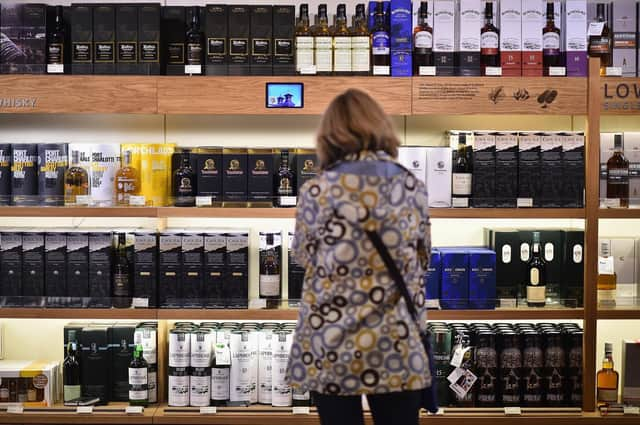Budget 2024: Duty freeze brings welcome respite, but more needs to be done to support Scotch whisky - Mark Kent


Why cut duty on Scotch Whisky you may ask; surely there are other priorities? As the UK’s biggest food and drink export, it is a major manufacturer which employees tens of thousands of people across Scotland and the UK supply chain, generates over £7bn in economic contribution annually, and exports 43 bottles a second. Scotch and its consumers deserve to be treated fairly, and the UK economy will benefit as a result.
What happens in the UK, in tax and in regulation, sets the tone for many of the barriers the industry faces in global markets. Take duty stamps, for example. The budget announced that unnecessary and costly duty stamps would be abolished, removing a burden borne by distillers but not by brewers. Despite the fact losses from fraud in beer are over ten times greater than spirits, brewers did not face the same regulatory and compliance burdens as spirits.
Advertisement
Hide AdAdvertisement
Hide AdIn doing away with duty stamps, we welcome that one illogical inequity has been rectified. But there is more work to be done to support Scotch and ensure Scotland’s national drink is not put at a competitive disadvantage.
The UK is the industry’s 4th largest global market, but is one of the least competitive. Tax on Scotch Whisky in the UK is the highest in the G7 developed economies, and unbelievably it is double the average duty rate for spirits across the EU.
A duty cut would have reduced the 73 per cent tax burden on the average priced bottle of Scotch Whisky in the UK, but the duty freeze announced until at least February 2025 gives some respite. It will incentivise investment and, as with previous cuts and freezes, boost Treasury revenue, in contrast to the 10 per cent tax hike imposed last August which has actually lost the Treasury over £100m. With cost pressures hurting our bars and pubs, not to mention hard pressed consumers, the duty freeze also supports our hospitality sector, though many would have liked to have seen action to reduce VAT for on-trade businesses.
And it is in the on-trade where Scotch Whisky and its consumers are most disadvantaged. There continues to be great unfairness when it comes to alcohol taxation in the UK, with spirits like Scotch taxed at a higher rate per unit of alcohol than wine, beer and cider. The industry is also unable to access tax breaks available to other sectors through the so-called ‘Brexit Pubs Guarantee’ and small producer relief.
This must be addressed in future fiscal events. Pubs and bars are more than just about the beer at the front of the bar, increasingly they are about the world-class spirits at the back. Many pubs rely on premium spirits to underpin tight margins, and half of all drinks served in a pub are not beer or cider, so why focus just on these high-volume products for tax breaks, and disregard high quality spirits such as Scotch?
It is a muddled policy, and sets a bad example to international markets when the UK should be leading the way, backing our home grown success stories like Scotch Whisky.
Mark Kent is Chief Executive of the Scotch Whisky Association
Comments
Want to join the conversation? Please or to comment on this article.